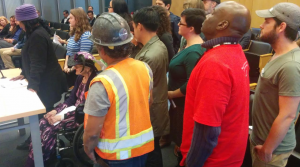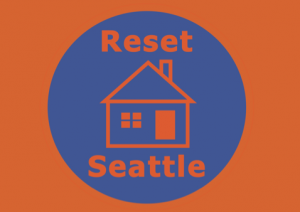
It has taken six years and dozens of lawsuits and settlements after the largest housing collapse since the Great Depression – and finally we may have a way to set up and implement local principal reduction programs in cities across the country.
September has brought us what is expected to be the last of the big settlements by the Justice Department against the big banks. The good news is that the settlements have grown progressively larger each time, with more and more specificity regarding how the banks must comply.
On the flip side, however, there are the murky oversight mechanisms that present challenges for municipalities and community groups looking for a handle.
In the latest settlement Bank of America is required to provide $2.5 billion in principal reduction where foreclosure is not pursued. Additionally, they’re required to pay $50 million to capitalize local programs administered by local governments, Community Development Financial Institutions or other community organizations.
This is ready-made for the proposal the Reset Seattle coalition is working to implement. Reset Seattle is an alliance of hundreds of individuals and more than 30 faith, community, and labor groups in Seattle dedicated to stopping the foreclosure crisis.
The Bank of America settlement money could create a revolving loan fund that is designed purchase underwater homes in zip codes that are particularly hard hit – such as those in southeast Seattle where 15 -20 percent of homes are underwater and homeowners haven’t felt the recovery the way parts of the city have.
Seattle must seize this opportunity to demand Chase, Bank of America and Citibank meet their settlement obligations by funding principal reduction proposals, like the one proposed in Seattle. This seems like a perfect fit for everyone – the banks meet their obligations, the city doesn’t have to issue bonds to capitalize the program and underwater homeowners in the city get their principal reduced saving hundreds of dollars every month.
In her latest brief on principal reduction, Alliance Policy Associate Allyson Fredericksen writes that “many other cities are already taking action to give banks the incentive to renegotiate mortgages and work with homeowners to avoid foreclosure”
Some of those incentives, according to Fredericksen, include instituting fees to encourage mediation, to issuing fines for blight on foreclosed homes, to releasing reports on banks’ actions in the community. Such actions put the responsibility on banks to act without putting additional pressure on homeowners.
Seattle should learn from other cities, and lead the way in helping homeowners, without requiring those stretched and stressed homeowners to negotiate with banks on their own.
Unfortunately as we’ve seen time and again since the housing market collapsed, common sense rarely wins out and unnecessary suffering is inflicted to score an ideological point. Hopefully the stars have finally aligned
You can read the Bank of America settlement here.
You can read the details of the Community Relief section here.